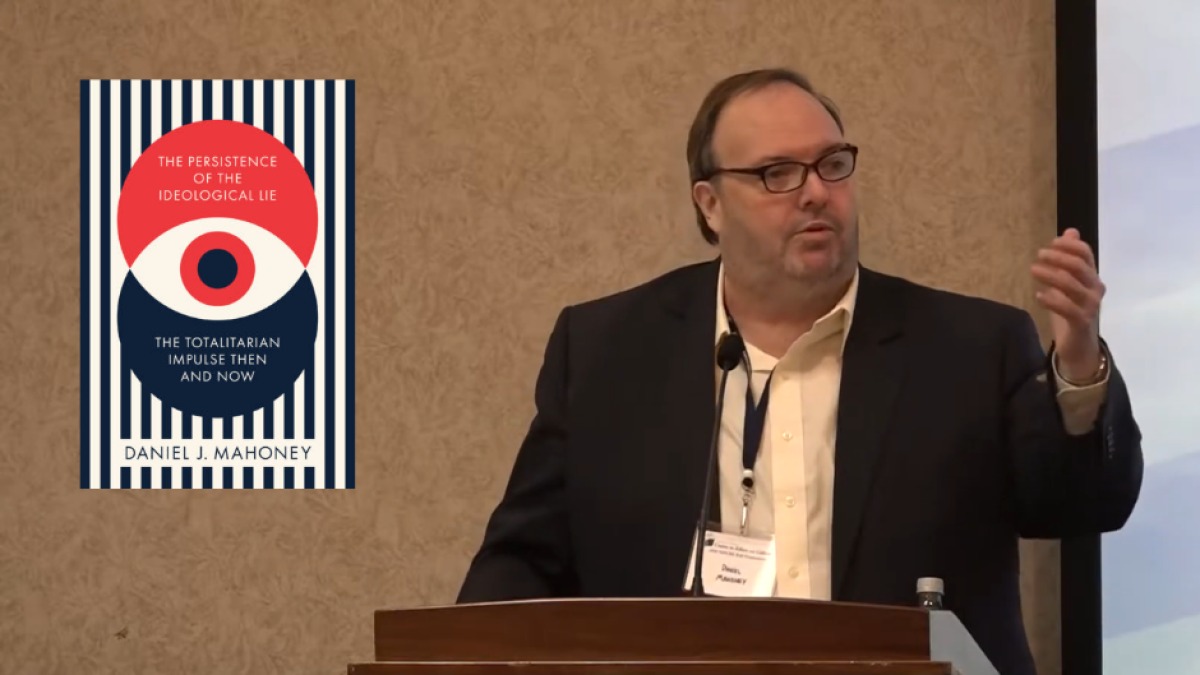Readings for advocates of real democracy
Daniel J Mahoney's latest book, 'The Totalitarian Impulse Then and Now,' is a philosophical approach to modern democratic perversion. Dostoevsky and Legutko complete the picture.

Professor Daniel Mahoney
Daniel Mahoney has written a short, straightforward book that every advocate of real democracy should read. And by real democracy we must understand not a political system based on universal suffrage and free and transparent elections, but, moreover, based on a moral universe by which leaders and citizens clearly know how to distinguish between right and wrong, between the common good and the tyranny of the individual, between the pulse of instant gratification and a life of virtue, between the inordinate lust for power and service to others.
Mahoney's thesis is easy to explain: liberal democracy has become in recent decades—with particular speed in this part of the 21st century—a "progressive democracy," basically dominated by the ideology born in the 1960s, which disdains our history, tradition and institutions and attempts to supplant them with falsehoods such as the identity politics so much in vogue today. Moreover, perverting the language in use, the new ruling class shamelessly resorts to institutional violence—such as cancellation—to condemn and eliminate any thought that deviates from political correctness, basically everything but its progressive ideology.
The text has a great virtue: Mahoney describes with grace and sarcasm the manifestations intrinsic to this progressive democracy we are in. From wokism to post-colonialism, passing through the sexual revolution as a revolutionary weapon of Herbert Marcuse or the more modern Critical Race Theory. And he parsimoniously dismantles the false ideas on which they have been built.
"It is liberalism that strips the citizen of soul and morals."
Two remedies, two recommendations
However, the work suffers, in my humble view, from two major flaws. First, it does not address the why and how of this transition from liberal democracy to the current progressive democracy. At least not historically. Of course, he can be forgiven since his essay is a philosophical approach to modern democratic perversion.
The second is the simplicity with which he aspires to turn the current situation around and thus recover reason over violence and hegemonic lies. Beyond a call to resistance and to reject the perversion of the current political language, or to trust in the emergence of authentic leaders with a clear moral compass, little else is said.
It is liberalism that strips the citizen of soul and morals by essentially turning him into a consumer unit in a constant quest for instant gratification. Materialism for mass society—the social contract put in place since World War II—and the centrality of the pleasure of the individual above all things are the corrosive factors of our social structures that the left takes advantage of to exert its dominance. Without taking this point into account, it is practically impossible to channel today's democracy and stop its totalitarian drift.
Nevertheless, Mahoney opens the door to this reflection by introducing at the end of each chapter a list of works by conservatives in which this tension between liberal and conservative values is usually well reflected. If only for this bibliography alone, the book would be worthwhile.
And as a final boldness, I would allow myself to recommend two readings to Mahoney's work that complement it and endow it with a broader dimension: the novel by Dostoevsky, Demons, for reflection on human nature and the power of corruption; and Polish author Ryszard Legutko's essay, The Demon in Democracy: Totalitarian Temptations in Free Societies, for a deeper understanding of the radical transformation of liberal democracy into progressive democracy that Mahoney denounces.
A perfect picture for understanding our political system, the social organization that sustains it, and human weaknesses.

























